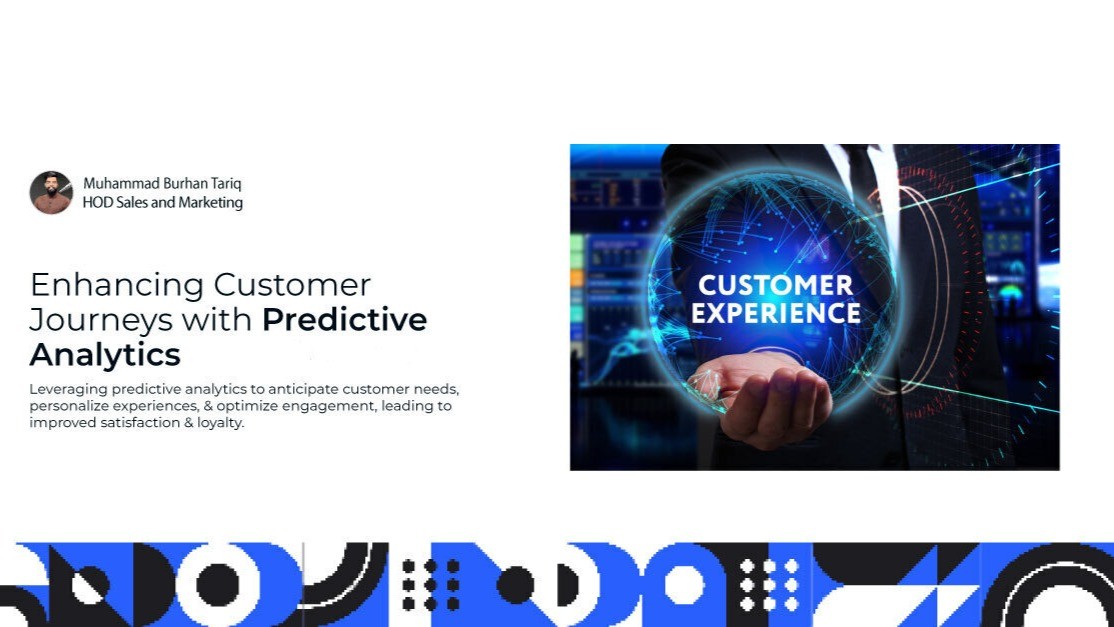
Enhancing Customer Journeys with Predictive Analytics
Muhammad Burhan Tariq
Head of Business Development | International Direct Sales | Bench Sales | Strategic Planning | Marketing Strategy | Staff Augmentation | Lead Generation Expert | Generate Revenue | IT Services and Resources
Understanding and anticipating customer needs is key to building lasting relationships and driving sales in today's competitive market. Predictive analytics has emerged as a powerful tool in enhancing customer journeys, allowing businesses to deliver personalized experiences that resonate with their target audience. By analyzing historical data and identifying patterns, predictive analytics enables companies to forecast customer behavior, tailor marketing strategies, and ultimately, increase customer satisfaction.Predictive analytics can revolutionize how businesses approach customer journeys by providing insights into what customers will likely do next. Whether it’s predicting which products a customer might be interested in or identifying when they are most likely to make a purchase, this technology allows businesses to proactively engage with customers at the right moment. The result is a more seamless and relevant experience that meets and exceeds customer expectations.From my experience as the HOD of Sales & Marketing, integrating predictive analytics into our customer engagement strategies has been a game-changer. We were able to anticipate customer needs more accurately, resulting in more targeted campaigns and higher conversion rates. One of the most significant improvements was in our ability to reduce churn. By identifying at-risk customers through predictive models, we could take preemptive action, such as offering personalized incentives, to retain them. This approach not only boosted our retention rates but also fostered stronger customer loyalty, proving that the right data can lead to powerful outcomes. One of the key benefits of predictive analytics in enhancing customer journeys is its ability to create personalized experiences at scale. In the past, personalizing marketing efforts required extensive manual effort and was often limited to high-value customers. However, predictive analytics automates this process, enabling businesses to deliver customized content, offers, and recommendations to a broader audience without compromising on quality. This level of personalization fosters deeper connections with customers, making them feel valued and understood.Moreover, predictive analytics can significantly improve the efficiency of marketing efforts by optimizing resource allocation. By identifying which marketing channels and strategies are most likely to succeed with specific customer segments, businesses can focus their efforts on the most promising opportunities. This not only maximizes the return on investment but also ensures that customers receive messages that are relevant to their needs and preferences, further enhancing their journey. In conclusion, predictive analytics is transforming the way businesses engage with customers by enabling more personalized, timely, and effective interactions. By leveraging this technology, companies can enhance customer journeys, drive loyalty, and achieve better business outcomes. In my role, I've witnessed how predictive analytics can turn data into actionable insights, creating a more satisfying and connected customer experience that ultimately leads to growth and success.